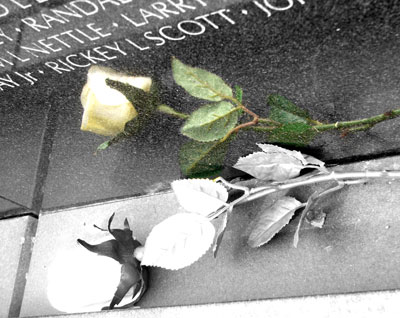All Nonfiction
- Bullying
- Books
- Academic
- Author Interviews
- Celebrity interviews
- College Articles
- College Essays
- Educator of the Year
- Heroes
- Interviews
- Memoir
- Personal Experience
- Sports
- Travel & Culture
All Opinions
- Bullying
- Current Events / Politics
- Discrimination
- Drugs / Alcohol / Smoking
- Entertainment / Celebrities
- Environment
- Love / Relationships
- Movies / Music / TV
- Pop Culture / Trends
- School / College
- Social Issues / Civics
- Spirituality / Religion
- Sports / Hobbies
All Hot Topics
- Bullying
- Community Service
- Environment
- Health
- Letters to the Editor
- Pride & Prejudice
- What Matters
- Back
Summer Guide
- Program Links
- Program Reviews
- Back
College Guide
- College Links
- College Reviews
- College Essays
- College Articles
- Back
Motivation or Action
Even though we humans are much smarter and more adroit than long ago, we are still not perfect. Even if in our heads our intentions are good, the way we show it might be not quite right. As so, I think that it is important to look at someone’s motivation before judging his or her action.
The “good-intention-but-wrong-action” often appears in our daily lives, especially among young children. Those kids try to do something good, but being ignorant and clumsy, their good intentions usually turn wrong. For example, a child try to bake a cake for his mother’s birthday but instead of a delicious cake, the surprise waiting for mom is a messed up kitchen and some shattered dishes. However, if that kind of incident happens, most parents don’t blame or punish the kid; instead they compliment his good behavior and praise him.
This is because those two parents know that the child didn’t intentionally litter the place; what was in his head was a surprise to make mummy happy, a good intention, but he just had some difficulties to demonstrate it. They did not directly judge the actions; they considered the little kid’s motivations.
This genre of incidents can be a very small case like the example above, but they can also be a little bit more complicated in society.
Imagine that one day, you were on your way to the market to buy some groceries. Arriving in front of the shop, you saw through the store window a poor, starving-looking homeless man stealing a ramen in his pocket. Then what would you do? Will you coldly denounce him to the police or cut him some slack and let him go?
In this circumstance, we can’t tell that the beggar’s intentions were good or not. He just stole to save himself from starvation, to not die.
Recently, there was a similar event in Yongsan. Shopkeepers were forced to move out because of redevelopments. The indemnity given by the government was not enough; it was impossible for them to reopen their stores, which were all they had. Having no place to go, they stood against bulldozers to try to save their place, their lives. During the resistance, blood was seen and shopkeepers were prosecuted. However, in court, the judge found them not guilty and set hem free. This was because the judge understood that those people had no choice but to face that situation to sustain their already difficult lives. In other words, the judge considered the shopkeepers motivations and gave a judgment of acquittal.
The daily life’s events show us how most people usually consider the motivations hidden behind actions. But affairs like this case that happened last year in Yongsan makes us reconsider about the importance of considering someone’s motivation before judging his/her actions.

Similar Articles
JOIN THE DISCUSSION
This article has 0 comments.
